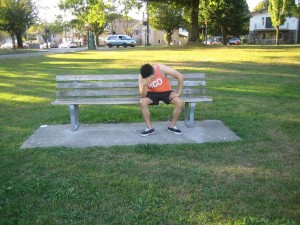Lightheadedness is a sensation as if about to faint. The body might feel heavy while the head feels that it is not getting enough blood. This might be accompanied by cloudy vision and balance loss.
It often occurs if moving rapidly from a seated to a standing position. The change in position causes a drop in the flow of blood to the brain. The drop in the blood pressure causes one to feel faint. One is likely to experience this condition if dehydrated due an ailment or poor intake of fluid.
What are the causes?
Aside from dehydration and positional changes, other usual causes of lightheadedness include:
- Having common cold or flu
Remember that lightheadedness accompanied by stroke or heart attack symptoms require immediate treatment. - Allergies
- Low blood sugar
- Altitude sickness
- Dehydration due to diarrhea, vomiting, fever and other ailments
- Using alcohol, tobacco or prohibited drugs
- Stress or anxiety
- Hyperventilation
When to consult a doctor
Seek medical attention if an individual had significant blood loss and feels lightheaded. Remember that lightheadedness accompanied by stroke or heart attack symptoms require immediate treatment. These symptoms include the following:
- Nausea
- Facial drooping on one side
- Vomiting
- Shortness of breath
- Chest pain or pressure
- Unexplained sweating
If lightheadedness lasts for a week or longer or result to an injury or nausea, a doctor should be consulted. Seek medical care if it becomes worse over time.
Management of lightheadedness
Lightheadedness that is not due to a heart attack, severe blood loss or stroke often settles over time. Other treatment options deal with the underlying condition.
The treatment for less serious causes of lightheadedness might include:
- Increased intake of water
- Intravenous fluids
- Drinking electrolyte-based beverages
- Lying down or being seated to minimize the elevation of the head relative to the body
As for serious cases of lightheadedness or one that does not settle, the treatment options might include the following:
- Low-salt diet
- Water pills
- Anti-migraine medications
- Anti-nausea medications
- Anti-anxiety medications
- Psychotherapy to minimize anxiety
- Balance therapy
- Antibiotic injections in the inner ear
- Removal of a sense organ of the inner ear

